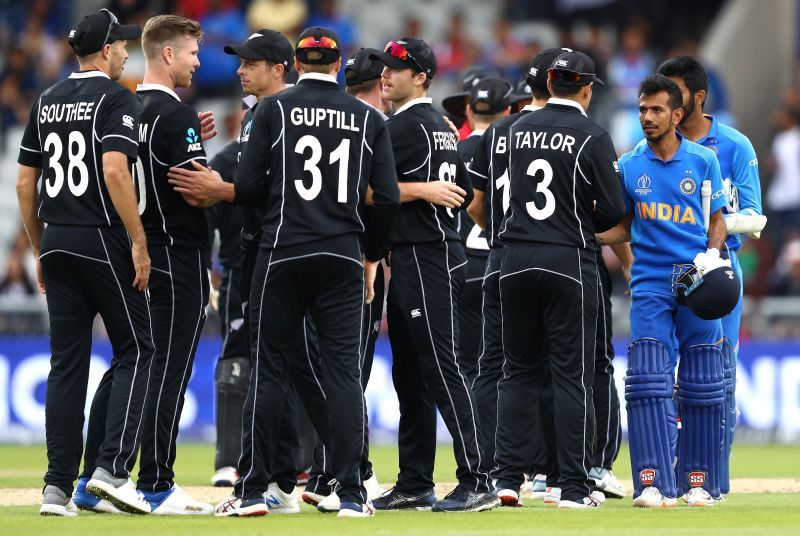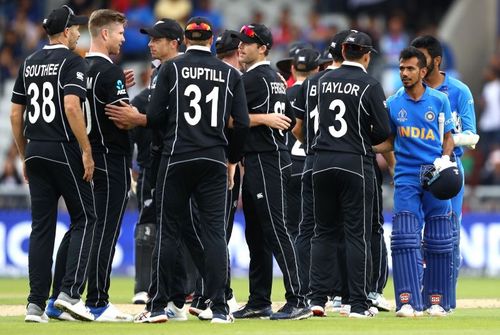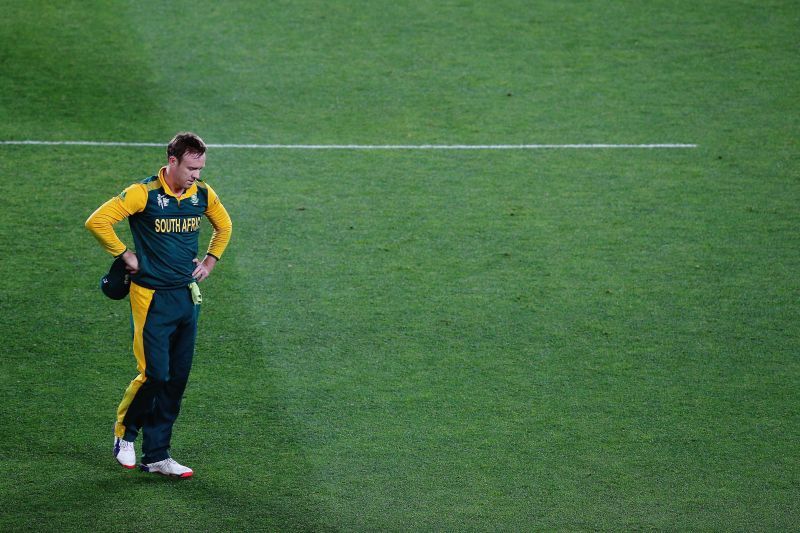
Will India lose their fans' trust and support if they don't win an ICC trophy by 2023?

The last six ICC tournaments have witnessed six different winners.
New Zealand and South Africa are the only two sides who have made it to or beyond the semifinal stages of ICC tournaments to have missed out the winner's list in this phase. The two teams are also the only ones to have never won a World Cup in any format, despite reaching at least the semis on multiple occasions.
But it isn't just these two teams that are said to be jinxed or unlucky in big tournaments. There is yet another big team that has earned this tag after their last ICC tournament victory in 2013 - India. The Indian cricket team is the only one to have reached at least the semifinals of all of the five ICC tournaments played between 2014 and 2019. Yet, they did not win a single one of them.
Four ICC tournaments will be played in the span of the next three years. This includes two T20 World Cups, one 50-over World Cup, and a Test Championship - the first of its kind - which is already underway.
Despite a whitewash in New Zealand earlier this year, India are still leading the points table of the Test Championship. Even if they end the league stage being second on the board, they will directly make it to the finals - a one-off match for the title.
The 20-over World Cup in 2021, as well as the 50-over World Cup in 2023, will be played in India. India is still ranked among the top teams in all formats, has one of the best bowling lineups, the best top three in limited overs cricket, and a highly potent young squad. Indian cricket has no dearth of talent, even if they look at the level of performances at the junior, domestic and IPL levels.
However, failing to win even one of these four ICC tournaments would raise serious question marks over the management's efficiency. Yes, teams like South Africa and New Zealand have also failed at crucial stages at this phase. But comparing their margins of losses in the matches they lost, with those of India's margins in similar matches, would tell you why this is a cause for concern.
India's margins of defeat have been far worse than South Africa or New Zealand

South Africa lost the 2014 World T20 semifinal after scoring 172 in the final over of the match, and lost the 50-over World Cup semifinal the following year thanks to a sixer by New Zealand's Grant Elliott off the penultimate ball. New Zealand enjoyed an eight-match unbeaten streak in the 2015 World Cup, and while they lost to Australia in the final, they had beaten the eventual champions in the group stages.
They enjoyed a similar unbeaten run in the 2016 World T20, and while they lost to England then - they did not lose by a margin of a single run or wicket, even in the Super Over of the 50-over World Cup final in 2019.
India were unbeaten in the 2014 World T20 and 2015 World Cup until the final and the semifinal respectively. But in both the matches, the team failed in both the batting and bowling departments badly.
Just before the 2016 World T20, India won three consecutive T20 tournaments in the span of just forty days, including whitewashing the Aussies in their own backyard and an Asia Cup victory in which they won all the matches.
But in the T20 World Cup, which was being played in home conditions, India's performance was nearly as bad as it has ever been in the history of the tournament.
They lost to New Zealand in their opening match, and somehow snatched victory from the jaws of defeat in the matches against Bangladesh and Australia. Even after scoring 192 in the semifinal, India's bowlers didn't have an answer to the Windies' power-hitting.
Despite the odd big blunders, there was no justification for India's 180-run loss to a Pakistan team that has reached a fifty-over ICC tournament final only once in this century. India's performance in their only matches against eventual finalists England and New Zealand in the 2019 World Cup was nowhere close to average.
While they bowled badly and didn't show any intent during the final overs of the chase against England, they couldn't hold their nerve during the course of a relatively small chase in the semifinal against New Zealand and lost their top six batsmen with just 92 runs on the board.
Besides lack of planning and other issues, a lack of mental toughness and the inability to absorb the big-match pressure has dented India's chances time and again in all these tournaments. But has it become an inherent feature of Indian cricket in this period?
Remember - India didn't win a single Test match bowling first in South Africa, England, New Zealand and Australia (the SENA countries, as they call them in cricketing terms) in the past decade (the 2010's). India haven't won a single multi-nation tournament involving even one non-Asian country since 2013 either.
Also, is there a serious problem with the management and the team's priorities? The management has faced severe criticism ever since Anil Kumble's unceremonious resignation as the team's coach after a great run for a full year. The team's culture was criticised during their 2018 tour of England, and players were trolled post the 'Koffee with Karan' episode.
The team's selection has also drawn flak - India's initial squad for last year's World Cup drew a lot of criticism. Despite playing Yuvraj Singh, Ajinkya Rahane, Manish Pandey, Shreyas Iyer, Ambati Rayudu and Shubman Gill in the two years leading up to cricket's premier tournament, India did not pick a specialist number four. The team played three wicket-keepers in the semifinal, and the batting order shuffle led to what looked more like a circus than a cricket match.
Just this year, after suffering a whitewash in the ODI series in New Zealand, India's captain said ODIs were not important this year - as a World T20 was slated to take place in October this year - before the spread of the COVID-19 pandemic.
A six-week IPL at the peak of the Indian summer every year also affects India's international ambitions directly or indirectly. Most of the matches are played on days when the maximum temperature hovers around 40 degree Celsius. And contracted players have to play, except in the case of special reasons. This has led to injuries and fatigue to players, who have complained of excessive workload.
In the past, the BCCI have also shown their muscle by having refused to send their team for the 2017 Champions Trophy had the ICC not agreed to the former's revenue-sharing demands. And despite the board being the richest by a distance in the cricketing world, they haven't invested money in the right places.
Barely no Indian ground has supper-soppers, which are available at most international grounds in the SENA countries, whose boards don't add up to equal BCCI's revenue. Remember how water spilling from the pitch-cover dampened the wicket, leading to a cancellation of India's T20 against Sri Lanka at Guwahati in January this year?
The fans are exorbitantly charged for seats and for food at the stadium. There are no reserved seat numbers. Unless you reach the stadium at least one hour before the match, there is every chance you might get a broken seat, might have to watch the match from behind a pole, or even stand for the rest of the match.
India's performance against New Zealand in the ODIs and Tests earlier this year was a reminder of their horrible run against big teams in the past decade. The whitewash in the Test series meant losing out on 120 points, which could affect their prospects of reaching the Test Championship finals, if they lose more Test series.
Virat Kohli's leadership will be under the radar, perhaps more than ever before. However, the good news is that Kohli is one person who is always up for a challenge. What happens behind the scenes, however, is something he will need to manage more smartly.
If India don't win an ICC trophy by 2023, they might just end up losing their ardent fans' trust and support.